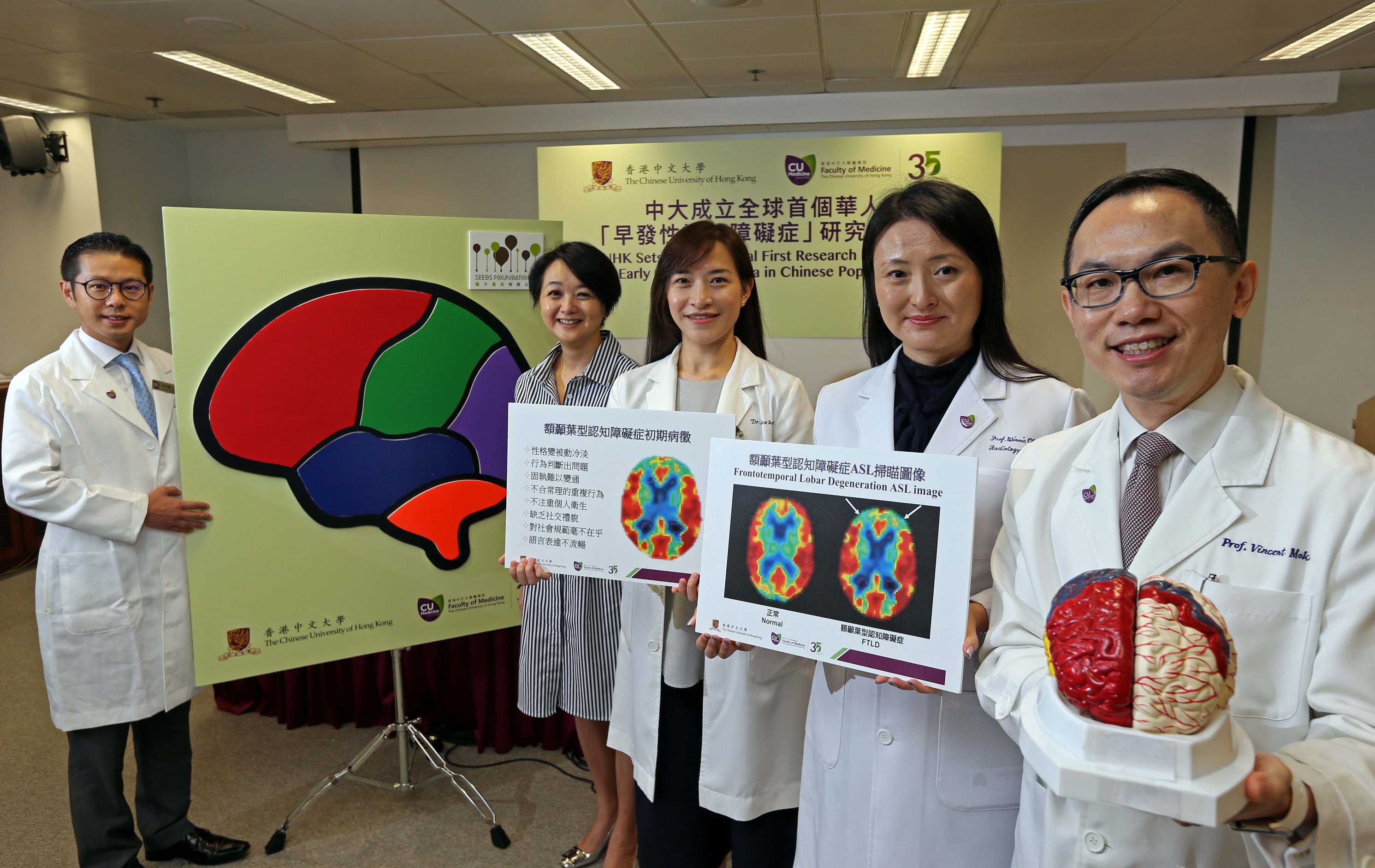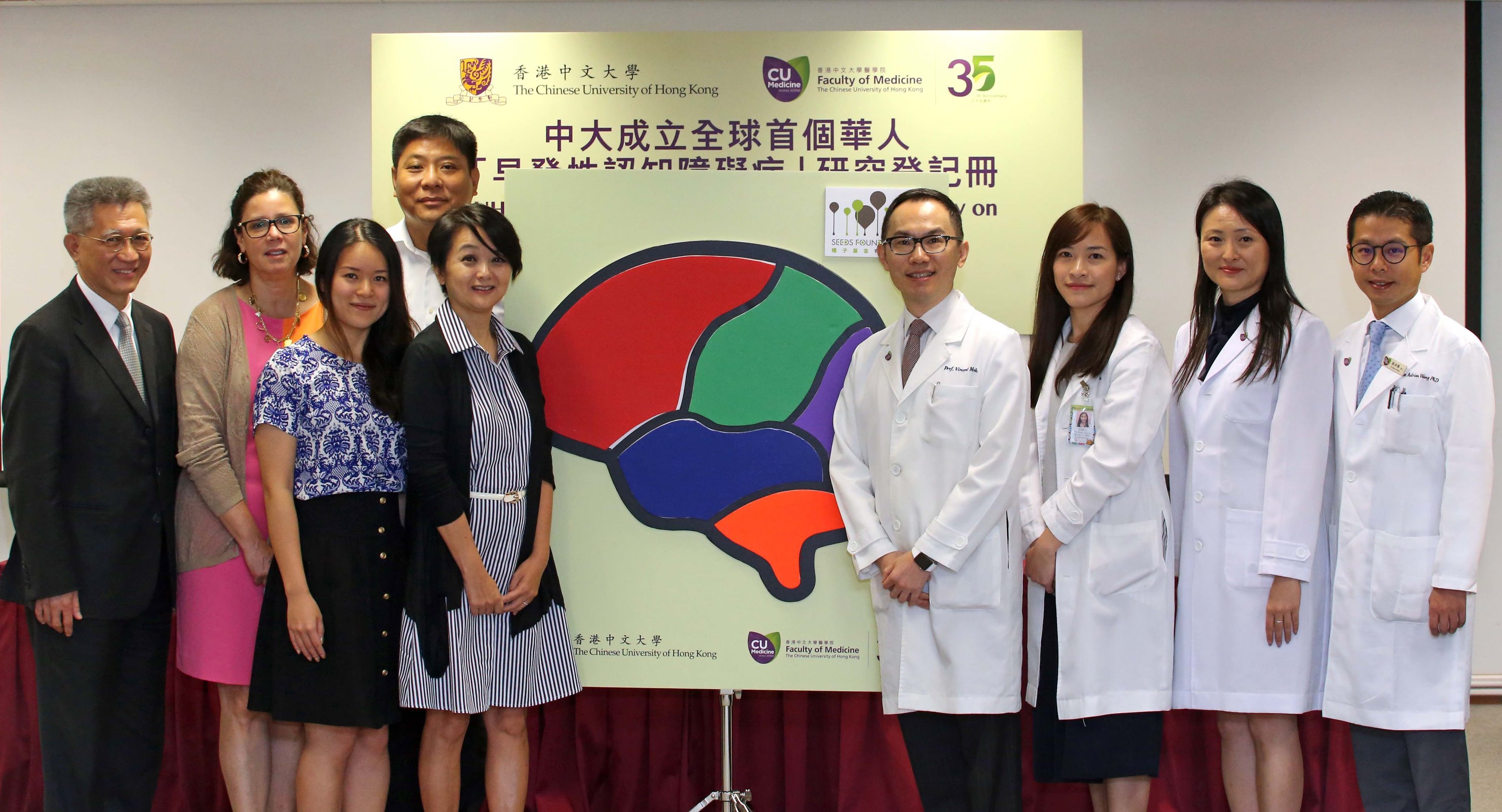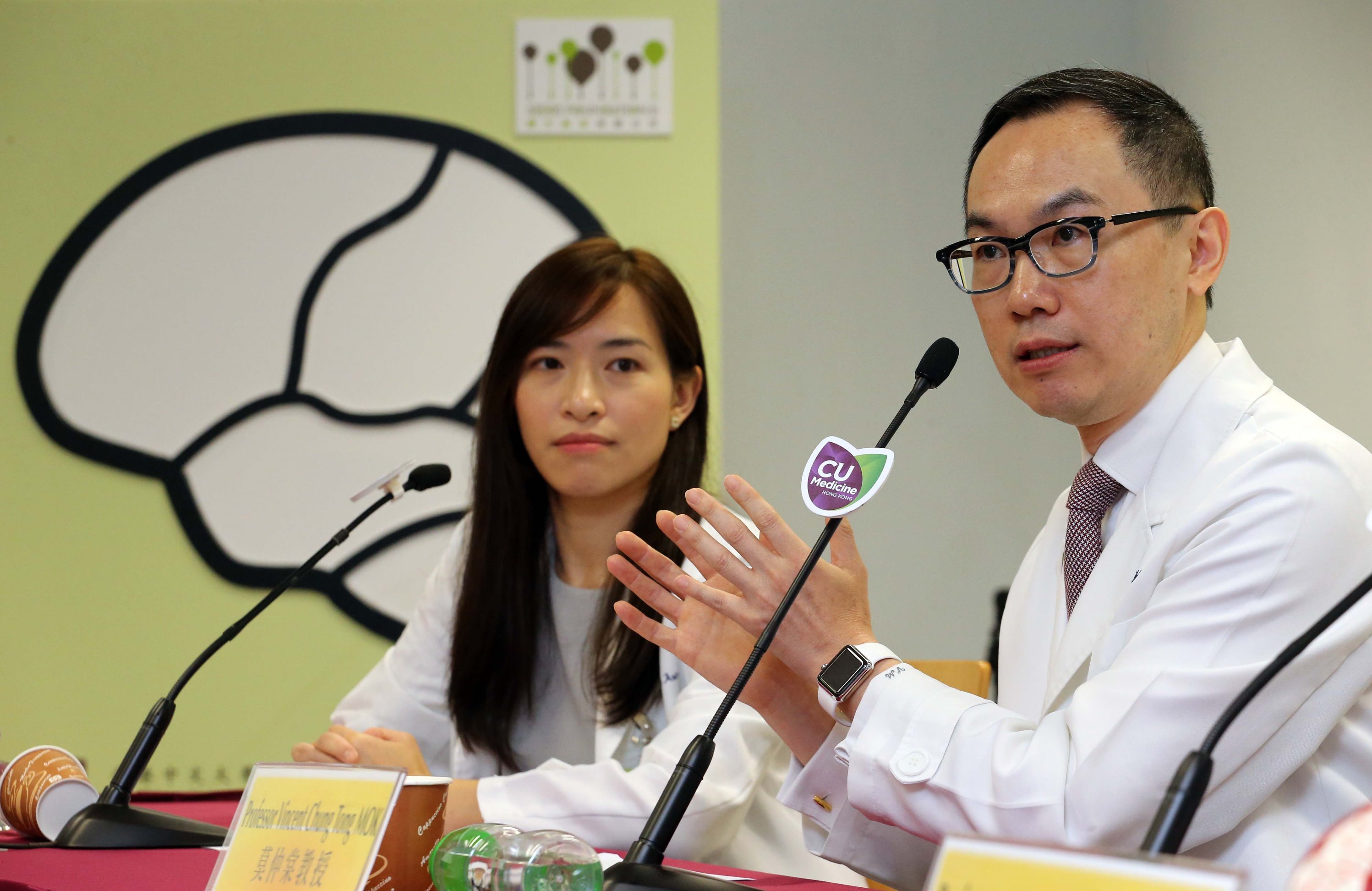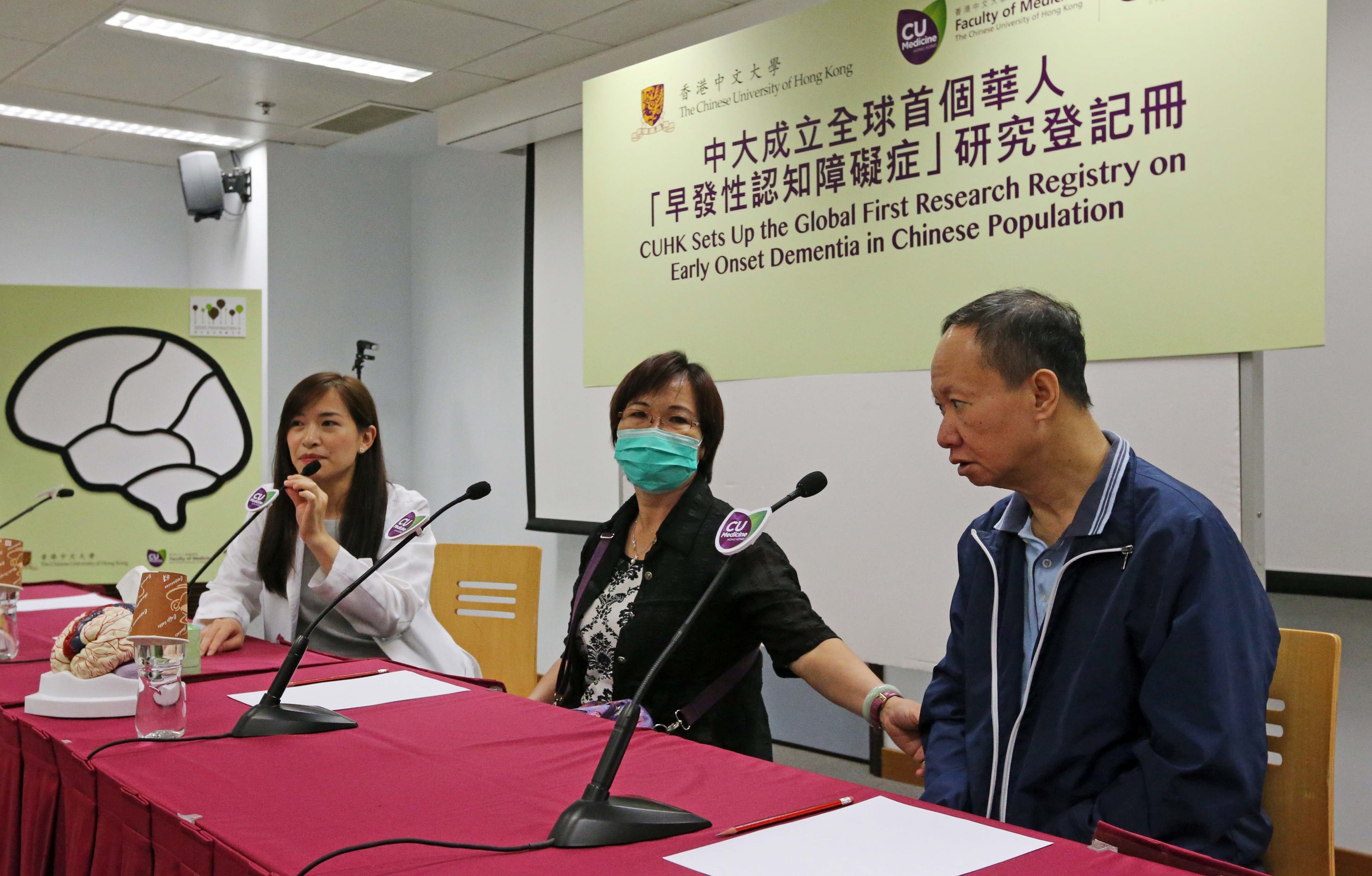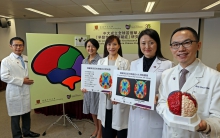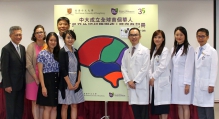CUHK
News Centre
CUHK Sets up World’s First Research Registry on Early Onset Dementia in Chinese PopulationThe Youngest Age of Onset is 38
In order to better understand the causes and impacts of early onset dementia in the Chinese population, The Chinese University of Hong Kong (CUHK) has set up a research registry programme for patients suffering from dementia before the age of 65. The project was supported by the Seeds Foundation Limited.
Dementia is generally thought to be a problem of the elderly. However, some overseas studies showed that about 30% of dementia patients have an early onset before age 65. These patients are defined as having ‘early onset dementia’. Although the disease is starting to gain attention in society, there is as yet no study conducted on the causes and impacts of early onset dementia in the Chinese population.
Mean age of onset was 58, youngest patient only aged 38
The CUHK study examined 64 patients who visited the Cognitive Disorders Clinic of the Prince of Wales Hospital under the Division of Neurology from January 2014 to December 2015. The mean age of onset was 58 years old, and the youngest patient was only 38 years old. Although Alzheimer’s disease (AD) is the most common type of dementia, more attention should be drawn to the fact that nearly one-third of early onset dementia were due to frontotemporal lobar degeneration (FTLD). Other causes include atypical parkinsonism, vascular dementia, alcoholic dementia and inherited metabolic disorder.
Dr. Lisa Wing Chi AU, Clinical Tutor (Honorary), Division of Neurology, Department of Medicine and Therapeutics at CUHK, stated, ‘Although FTLD is the second most common cause of dementia in patients with early onset dementia, not many have heard of this disease. The initial symptoms are often wrongly blamed on schizophrenia, menopause or depression. Patients often go through years of negative tests for other illnesses, before learning the truth about what is actually wrong.’
Accurate diagnosis of FTLD is difficult
FTLD is a neurological condition characterized by a progressive degeneration of the frontal and temporal lobes of the brain. The average age of onset for FTLD is between 40 and 60 years old and diagnosing FTLD is difficult because of its non-specific symptoms at the early stage. Patients may present with changes in personality, bizarre behaviours and language difficulties. It is difficult to diagnose as structural magnetic resonance imaging (MRI) may appear normal at early stage.
Prof. Winnie Chiu Wing CHU, Department of Imaging & Interventional Radiology at CUHK explained, ‘MRI in early FTLD may appear normal. Only functional imaging (i.e. PET or SPECT) is able to reveal the early changes associated with the disease. However, these scanners are not widely available and they involve exposure to radiation and require injection of contrast. In this study, we applied a new advanced MRI technique – Arterial Spin Labelling (MRI-ASL) and found that it may be useful in the early detection of FTLD. This technique offers the possibility of capturing functional and structural changes in the brain in a single study.’
Research aims to raise public knowledge on early onset dementia
In this study, researchers also evaluated the stress of individuals caring for early onset dementia patients. Dr. Adrian WONG, Research Assistant Professor and Clinical Psychologist at the Division of Neurology, Department of Medicine and Therapeutics at CUHK revealed, ‘Significant stress was reported by more than 70% of caregivers of patients with early onset dementia, which was much higher than the percentage reported in caregivers for stroke patients.’
Many of the family members take the role of full time caregiving, which consumes most of their time as well as their physical and mental energy. Some caregivers of FTLD are embarrassed by the inappropriate social behaviors of the patients in public areas. Some face financial problems as they gave up their jobs to take care of their family members with the disease. All this has put immense stress on the families of patients with early onset dementia. To them, the future can be filled with uncertainties.
Mrs. Yuk Lynn WOO CHEN, spokesperson of the Seeds Foundation Limited said, ‘We decided to fund this project because one of our five children has Attention Deficit Disorder and was diagnosed by a psychiatrist in America using image scanning technology. It brought clarity to his condition and enable him to have the right treatment. Our brain only weights three pounds but affects everything we do. Two years ago, we found that CUHK was pursuing this advanced research with early onset dementia/ frontotemporal lobar degeneration and we decided to fund this worthy cause. These research programmes at CUHK put Hong Kong at the cutting edge of brain research. We would encourage the government and other foundations to continue to support this effort. Better brain, better lives.’
‘Dementia can strike young people. To date, we estimate there are 3,100 early onset dementia sufferers in Hong Kong. FTLD is the second most common cause of dementia in this group of patient. Major early symptoms are changes in personality, inappropriate behaviours and language difficulties. We advise people to seek medical attention if they notice these symptoms in their loved ones,’ concluded Prof. Vincent Chung Tong MOK, Division of Neurology, Department of Medicine and Therapeutics at CUHK.
CUHK Medicine sets up the world’s first research registry on early onset dementia in the Chinese population, aiming to increase public knowledge of the disease.
Mrs. Yuk Lynn WOO CHEN, spokesperson of the Seeds Foundation Limited (5th left) and her team wish their support to CUHK Medicine’s research on early onset dementia will encourage the government and other foundations to continue to support this effort, thus to fulfil the goal of ‘Better brain, better lives’.
(Right) Prof. Vincent Chung Tong MOK, Division of Neurology, Department of Medicine and Therapeutics, Faculty of Medicine, CUHK advises people to seek medical attention if they notice any early symptoms of frontotemporal lobar degeneration, such as changes in personality, inappropriate behaviours and language difficulties.


